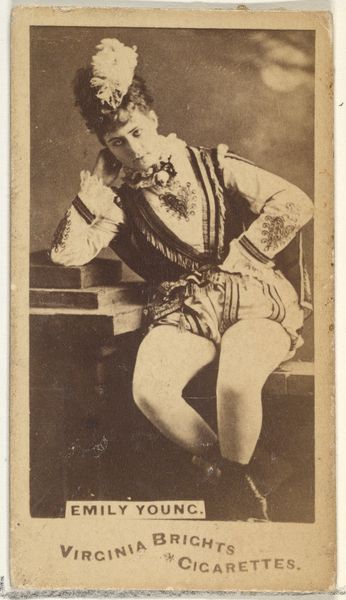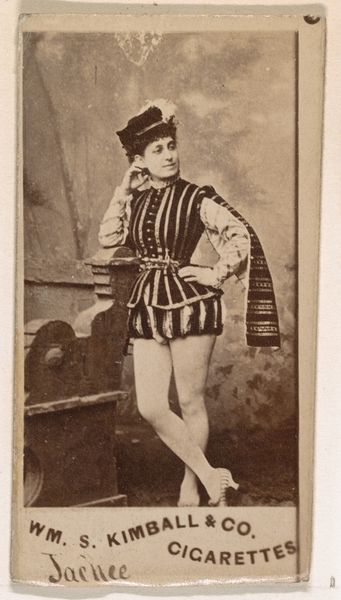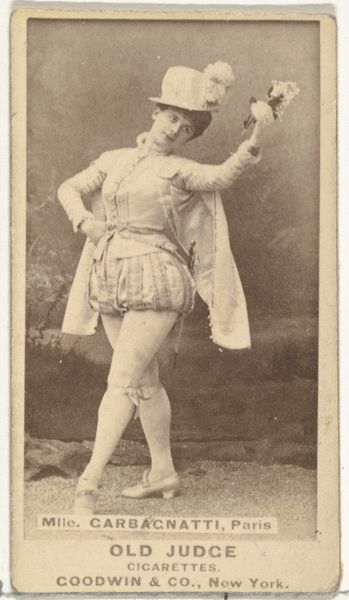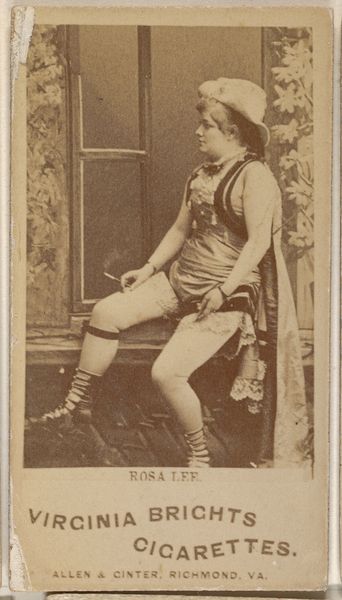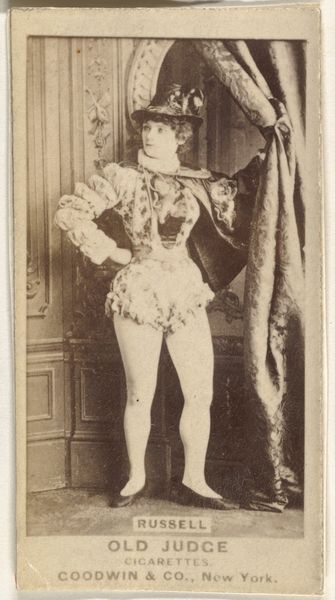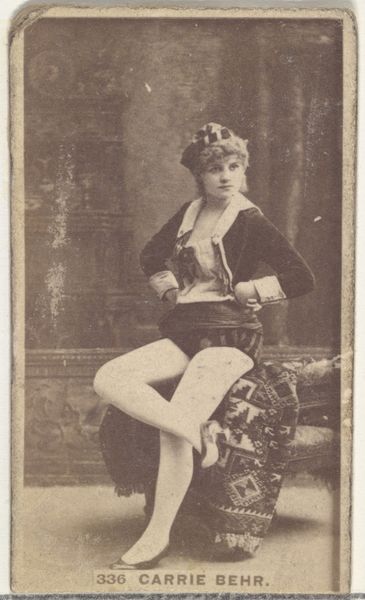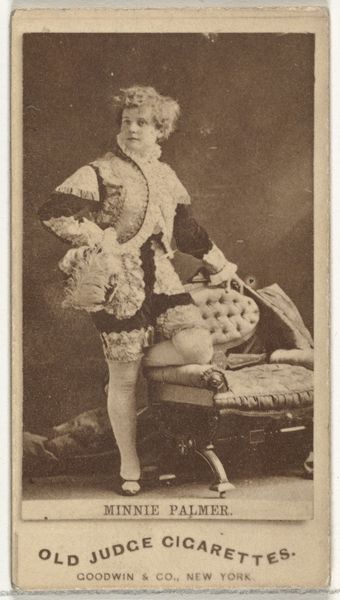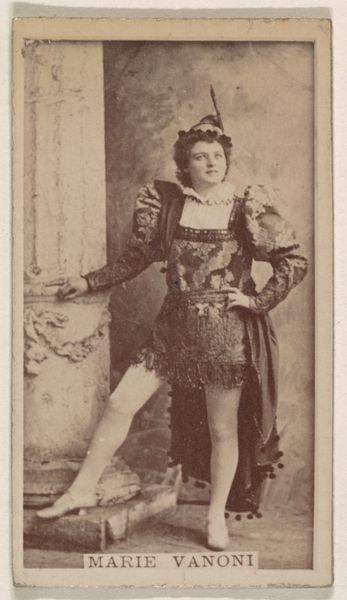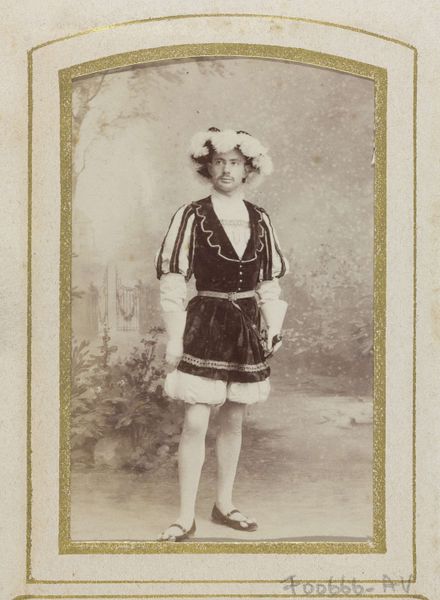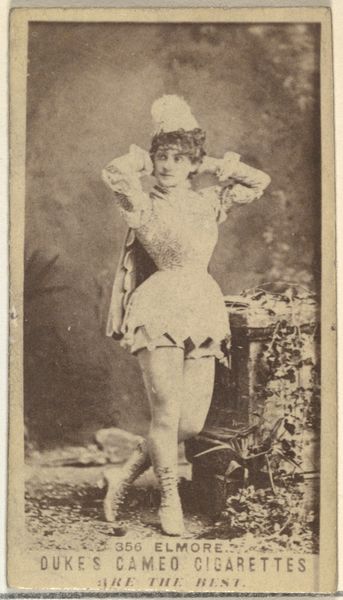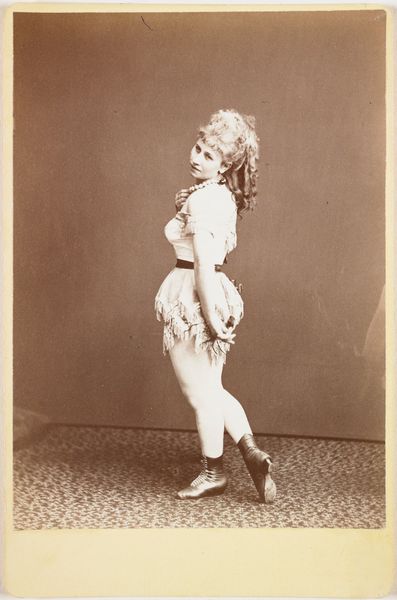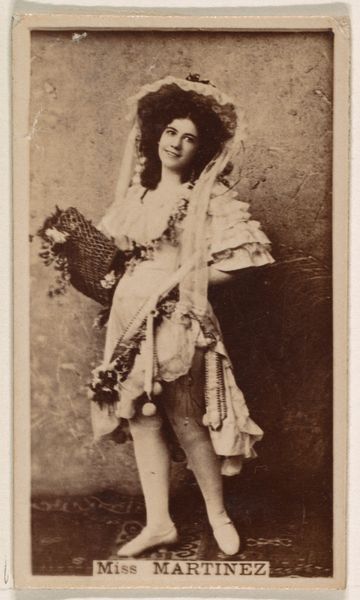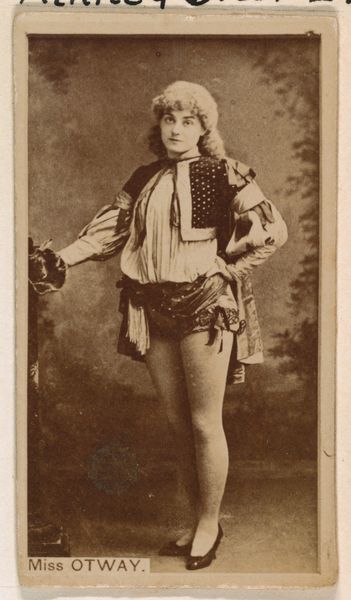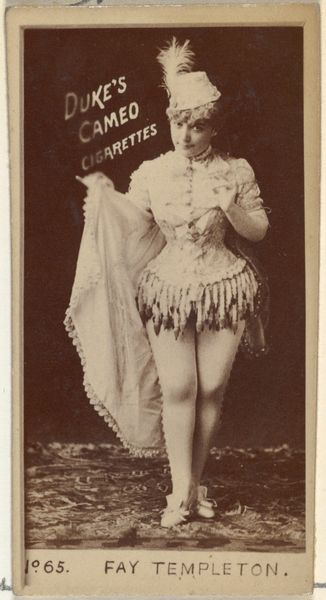
daguerreotype, photography
#
portrait
#
daguerreotype
#
archive photography
#
photography
#
historical photography
#
19th century
#
united-states
#
academic-art
Dimensions: 5 1/16 x 3 5/16 in. (12.86 x 8.41 cm) (image)6 3/8 x 4 3/16 in. (16.19 x 10.64 cm) (mount)
Copyright: Public Domain
Jeremiah Gurney made this albumen print photograph of Alice Atherton sometime in the late 19th century. The process involved coating paper with a layer of egg white, then using light-sensitive silver nitrate to capture the image from a glass negative. The albumen process, while seemingly technical, democratized portraiture. As photography became more accessible, more people could participate in visual culture. However, the labor involved—preparing the albumen, coating the paper, and developing the print—was intensive. Gurney’s studio, located on Broadway in New York, likely employed many hands to produce these portraits efficiently, reflecting a shift toward industrialized image-making. The material qualities of the albumen print—the smooth surface, the subtle sepia tones—contribute to the photograph's soft, dreamy aesthetic. The image is mounted on card stock, another industrial product, demonstrating the increasing integration of photography into commercial and social life. By considering the materiality and production of this photograph, we can understand its role within the broader context of 19th-century capitalism, labor, and the burgeoning culture of mass media.
Comments
No comments
Be the first to comment and join the conversation on the ultimate creative platform.
